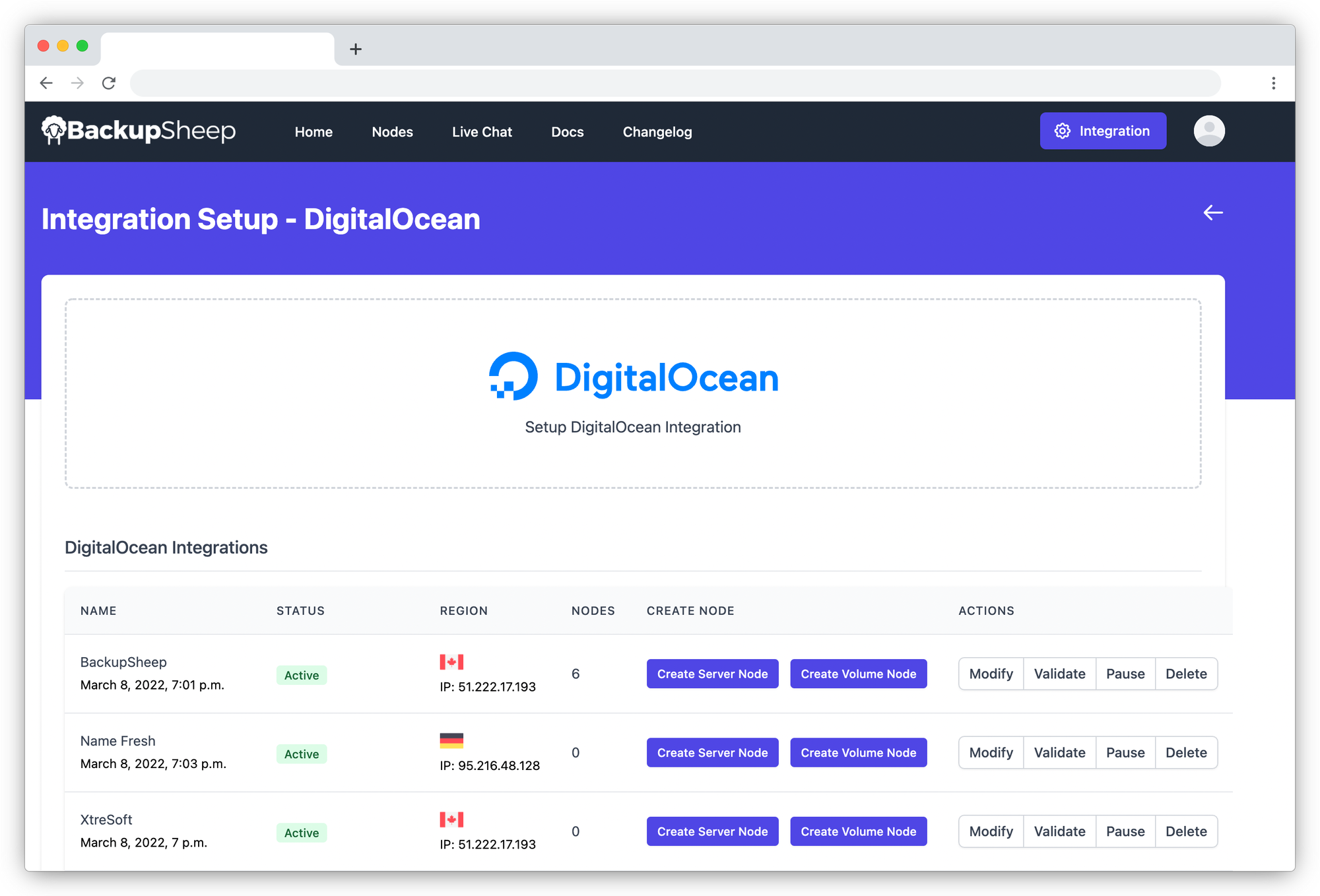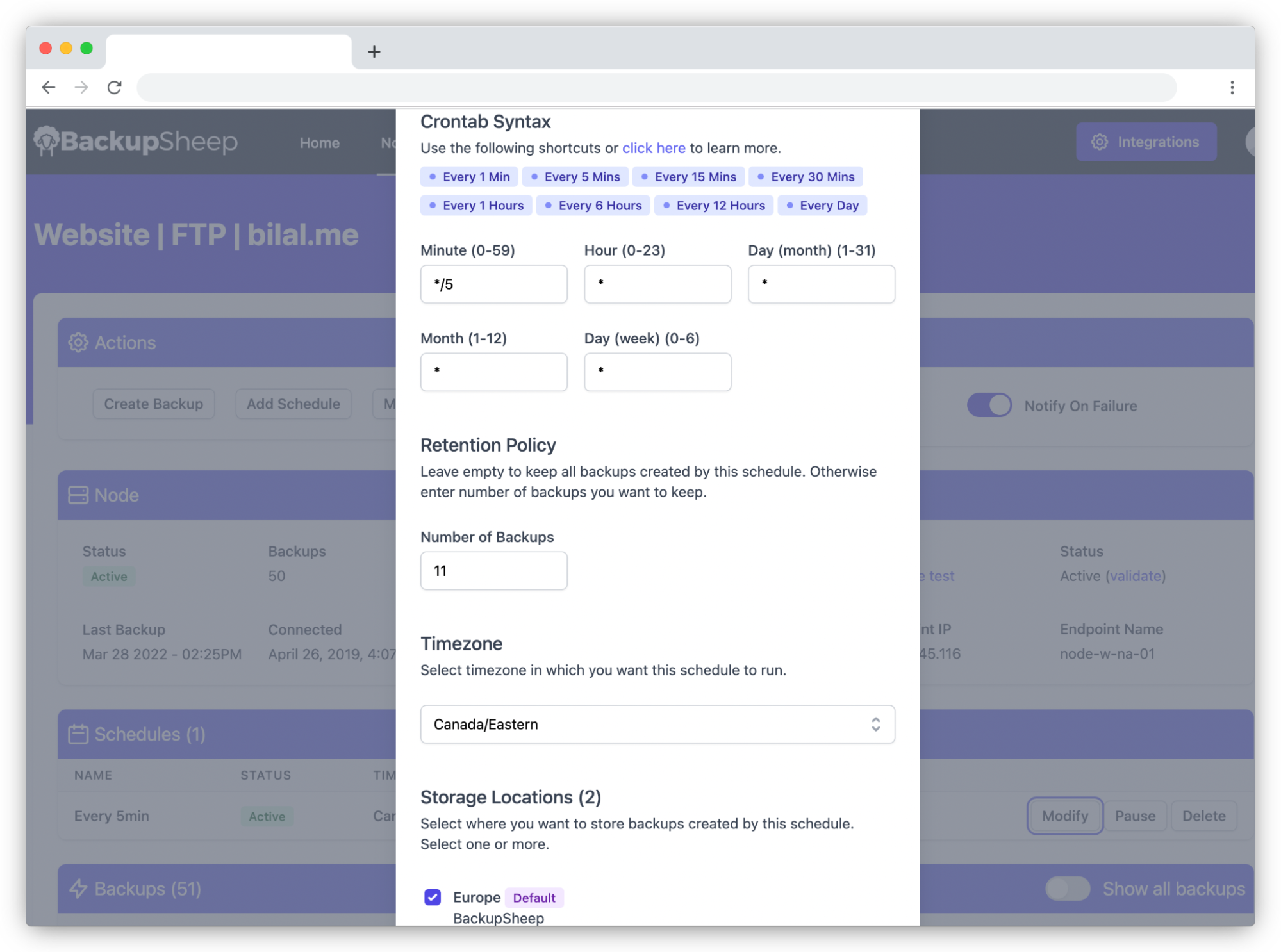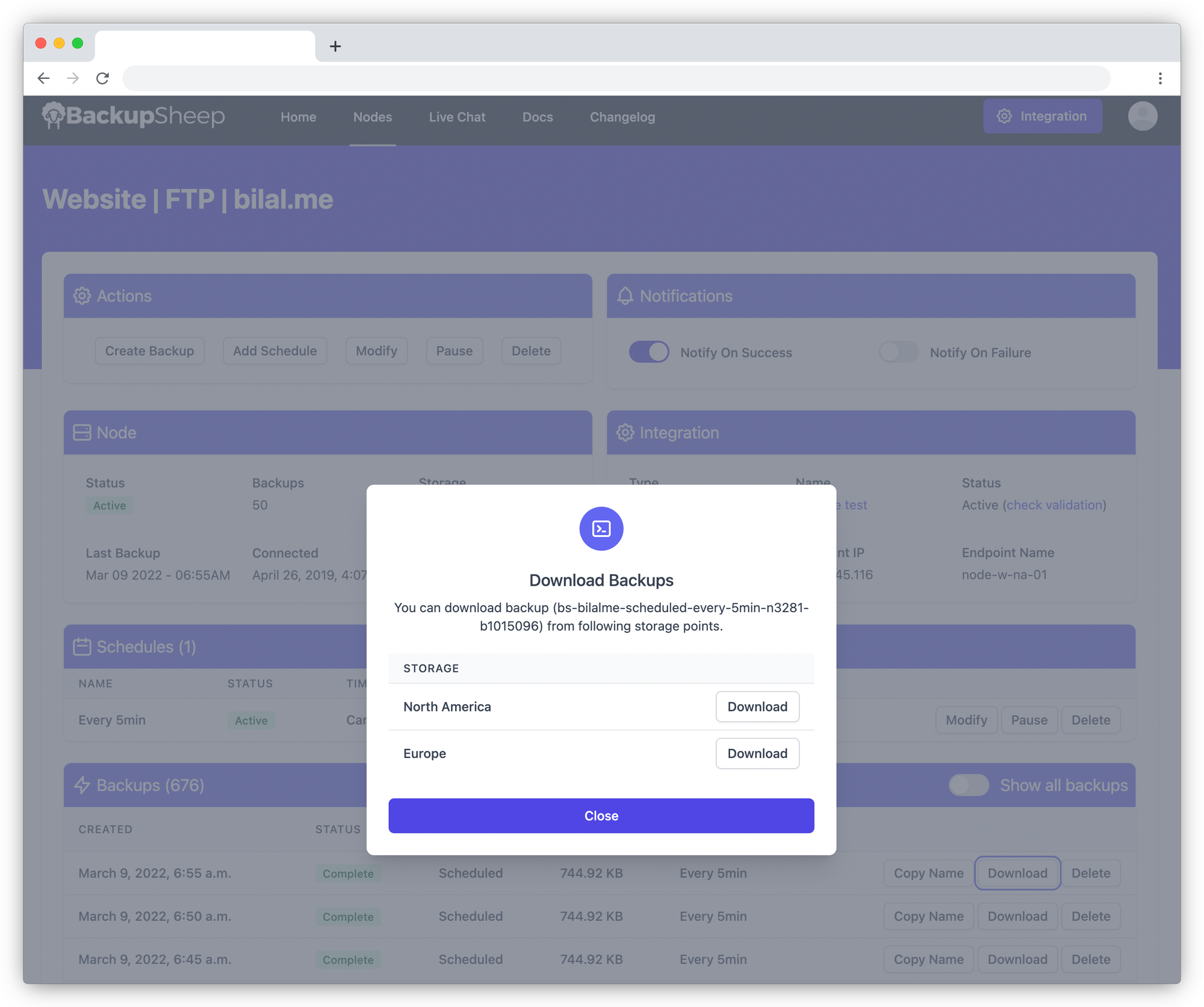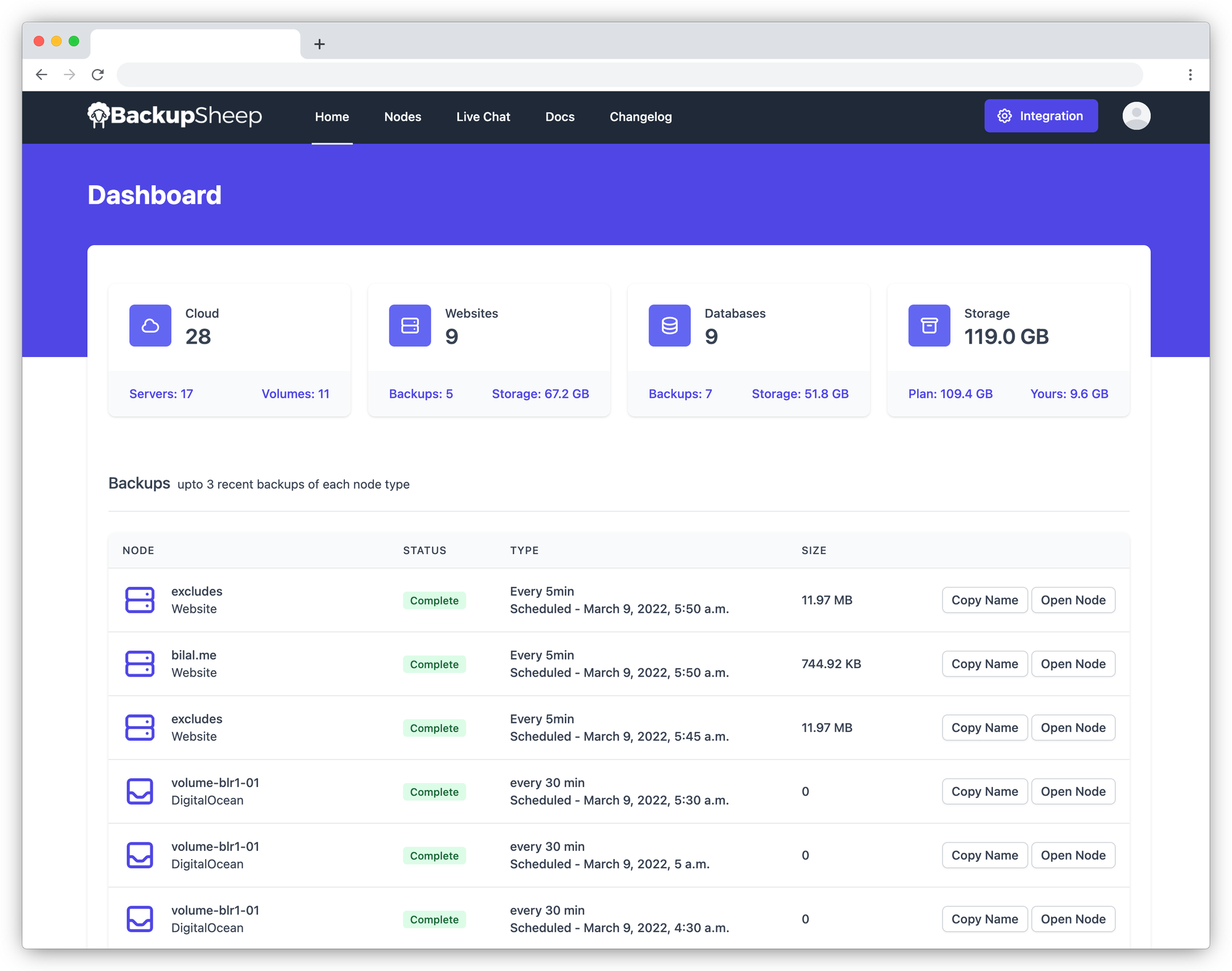BackupSheep
Automate backups for cloud servers, databases, and websites.
Moving to the cloud seems like a no brainer—until the server crashes or an update accidentally deletes all your files. (“Safe to say I am not, in fact, on cloud nine about this development.”)
You want to securely automate your backup process, but figuring out how to get started sounds expensive and confusing.
What if there was an affordable tool that let you manage cloud, database, and file server backups without any hiccups?
Jump into BackupSheep.
TL;DR
At-a-glance
Best for
Integrations
Overview
BackupSheep is a no-code backup automation tool that lets you delegate backups for cloud servers, databases, and file servers.
BackupSheep makes it easy to automate the entire backup process—minus any coding.
Connect all your cloud hosting accounts and configure snapshot schedules or retention policies for cloud servers and volumes right from the main dashboard.
You can use public APIs to automate snapshots with major cloud providers, so you’ll never have to perform backups manually ever again.

BackupSheep integrates with major cloud hosting providers and automates snapshots, all without writing any code.
To get started, set a backup schedule by filling up the fields with your name, crontab syntax, retention policy, number of backups, and timezone.
You can even pause a schedule to disable it temporarily or run multiple schedules, as long as they don’t overlap.
Plus, BackupSheep has servers in North America, Europe, Asia, and Oceania, so you can run faster backups across the globe while complying with regional privacy regulations.

Easily create a new backup schedule by filling up the fields with your basic information.
BackupSheep also allows you to seamlessly connect storage accounts and download backups from multiple storage points.
The tool supports 11 storage providers including Amazon Web Services, Digital Ocean, Dropbox, and Google Drive.
Thanks to the website integrations, you can connect your cPanel, SFTP or WordPress accounts to secure your data across a decentralized storage network.
Plus, BackupSheep also integrates with several SQL and NoSQL databases like MySQL, MariaDB, and PostgreSQL for efficient database backups.

Store the backups at multiple storage locations simultaneously and download them with one click!
Say goodbye to troubleshooting code for your backups. BackupSheep lets you manage all your backups in one dashboard for a seamless user experience.
You’ll even be able to share configurable access with team members, keeping your whole team on the same page.
Best of all, cloud server and volume backup storage usage will never impact your allocated storage limit!

Manage your cloud servers, databases, and file servers in one convenient dashboard.
You shouldn’t have to worry about losing all your files in 2022. (“TBT to the time I downloaded the entire Simple Plan discography on LimeWire and it killed my computer.”)
BackupSheep lets you connect a cloud hosting account, database, website, or storage integration, then automate the backup process with zero hassle.
Automate your backups with no coding required.
Get lifetime access to BackupSheep today!
Plans & features
Deal terms & conditions
- Lifetime access to BackupSheep
- All future Unlimited Plan updates
- You must redeem your code(s) within 60 days of purchase
- Stack up to 2 codes
- Available for new BackupSheep users and returning AppSumo purchasers
- Previous AppSumo customers who purchased BackupSheep can buy more codes to increase their feature limits
60 day money-back guarantee. Try it out for 2 months to make sure it's right for you!
Features included in all plans
- Custom retention policy
- API access
- Team access
- On-demand backups with custom intervals
- Webhooks
- Cloud server, storage volume, file server, and database backups
- Schedule backups up to one minute
- Timezone aware schedules
- Multi-schedule support
- Connect via SSH
- Unzip large server backups
- Bring your storage
- Servers - DigitalOcean, UpCloud, Lightsail, OVH Cloud, Hetzner, Vultr, AWS, File server
- Databases - MySQL, PostgreSQL, MariaDB
- Offsite Storage - Dropbox, AWS S3, DigitalOcean Spaces, Google Drive, Filebase, Wasabi